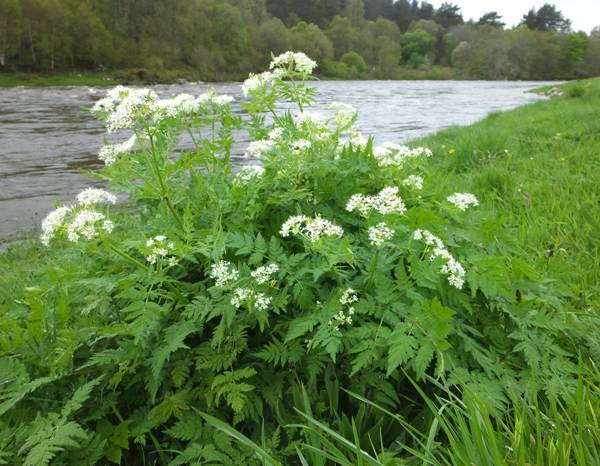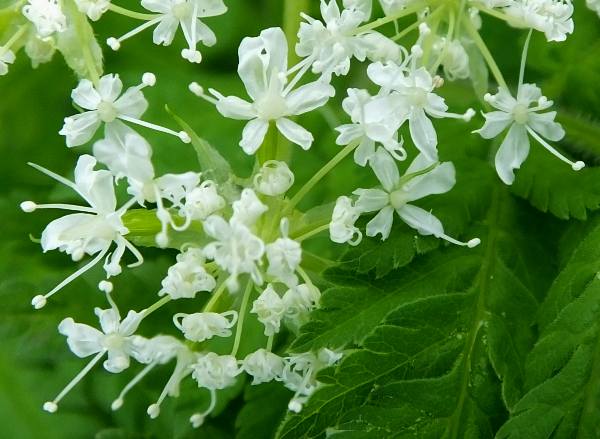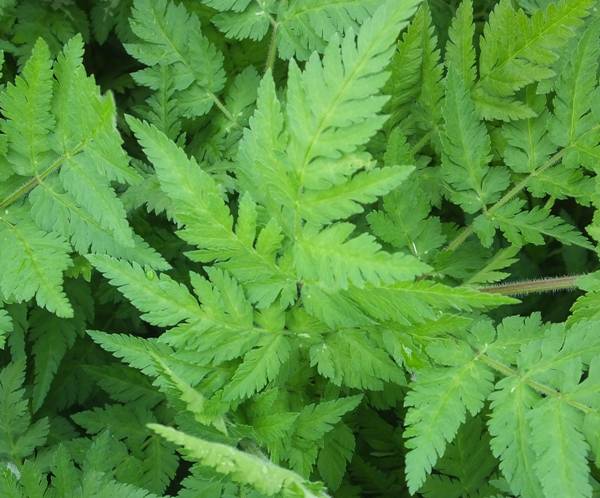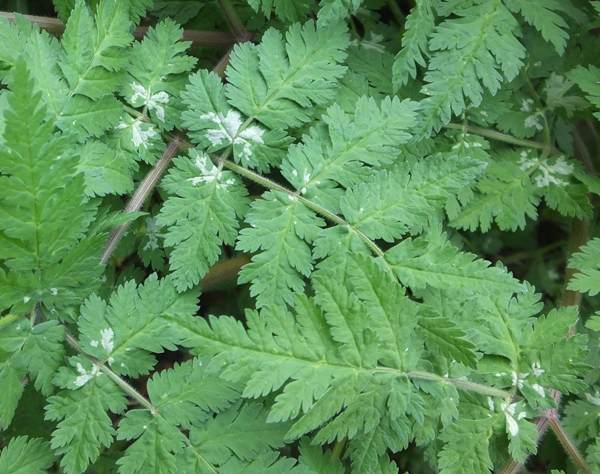Myrrhis odorata - Sweet Cicely
Phylum: Magnoliophyta - Class: Equisetopsida - Order: Apiales - Family: Apiaceae

Description
Sweet Cicely is a strongly aromatic umbelliferous herb that grows up to about a metre tall. When leaves are crushed the smell of aniseed is very strong. The white flowers form irregular umbels and have five deeply notched petals. Male and femal flowers occur on the same plant, although some umbels may have only male flowers.

The 2- to 4-pinate leaves of Sweet Cicely are usuaally a lighter shade of green than other early-season umbellifers.

Often the leaves develop silvery patches, as in the example pictured above.
Distribution
Found throughout Britain and Ireland, Sweet Cicely is most common in parts of northern England and Scotland. Although found on roadside verges and woodland edges, this plant is particularly common on the banks of rivers and streams.
Habitat
Sweet Cicely favours damp soil but it copes well with light shade or full exposure, often thriving at higher altitudes than Cow Parsely, which generally favours drier locations.

Blooming Times
The first flowers appear in April and are usually past their best by the end of June; however, in deeply shaded locations flowers can sometimes be found well in to July.
Uses
Sweet Cicely is edible and is quite widely grown as an aromatic medicinal herb, said to help asthma sufferers and those having other respiratory and digestive tract problems. The leaves taste of aniseed, and the roots have a liquorice flavour.
Etymology
Myrrhis, the genus name, comes from the Greek word for perfume, while odorata means fragrant. Sweet Cicely does indeed have an odour that many would describe as pleasant!
Sue Parker's latest ebook is a revised and enlarged edition of Wild Orchids in The Burren. Full details here...
Buy it for just £5.95 on Amazon...
Please Help Us: If you have found this information interesting and useful, please consider helping to keep First Nature online by making a small donation towards the web hosting and internet costs.
Any donations over and above the essential running costs will help support the conservation work of Plantlife, the Rivers Trust and charitable botanic gardens - as do author royalties and publisher proceeds from books by Pat and Sue.

